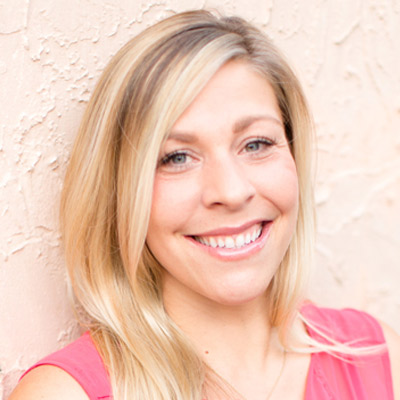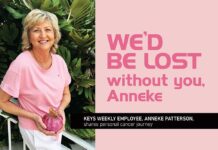We’ve all been there: struggling in a romantic relationship and hearing a timeworn adage from a well-intentioned friend, or coworker, or maybe mom. “You reap what you sow.” “You can’t teach an old dog new tricks.”
But do you always reap what you sow? We’ve all gotten away with bad behavior we shouldn’t have. And can you teach an old dog—or human—new tricks? We all challenge ourselves and our partners to change for the better, so I’d like to think so.
We caught up with the experts to ask them: are tried relationship adages actually true? We asked Dr. Eric Nichols, who holds a PhD in psychology and has been in private practice doing couples’ counseling since 1985 and Amy Gertz, a licensed marriage and family therapist with over 10 years of experience in supporting people through growth and healing. These two Keys-based professional therapists walked us through their assessments of those pieces of advice we’ve heard time and time… and time again.
“Don’t go to bed angry”
 DR. ERIC NICHOLS: I wouldn’t say “figure everything out before you go to bed.” I think of anger as a source of information for us, a flag. It shows we need to think about something. A lot of times, anger is what’s on top of fear or hurt or sadness. Years ago, at a conference, a couple in their 90s shared that they always save a little time at breakfast to say what they appreciate about each other and say what’s upset or angered them in the last 24 hours. When it comes to couples, I’m a firm believer that each person needs to think about the source of the anger. Because anger over time turns into resentment, and resentment is corrosive in a relationship. Talking about it is helpful, but then what are you going to do about it?
DR. ERIC NICHOLS: I wouldn’t say “figure everything out before you go to bed.” I think of anger as a source of information for us, a flag. It shows we need to think about something. A lot of times, anger is what’s on top of fear or hurt or sadness. Years ago, at a conference, a couple in their 90s shared that they always save a little time at breakfast to say what they appreciate about each other and say what’s upset or angered them in the last 24 hours. When it comes to couples, I’m a firm believer that each person needs to think about the source of the anger. Because anger over time turns into resentment, and resentment is corrosive in a relationship. Talking about it is helpful, but then what are you going to do about it?
 AMY GERTZ: The expectation of not going to bed angry can be difficult to achieve at times of high stress in the relationship. Trying to rush through a conversation just to have one isn’t productive and can leave people feeling disrespected, unheard, or alone. When we’re upset, we want to know that our partner is committed to being a part of the solution. Scheduling a time to address the situation at a more productive time demonstrates respect and caring. If you’re having a difficult time letting something lie until the next morning, it may be helpful to think about what you could do to get yourself in the best place to have the discussion the next day. Maybe that’s working out, journaling, or taking a walk.
AMY GERTZ: The expectation of not going to bed angry can be difficult to achieve at times of high stress in the relationship. Trying to rush through a conversation just to have one isn’t productive and can leave people feeling disrespected, unheard, or alone. When we’re upset, we want to know that our partner is committed to being a part of the solution. Scheduling a time to address the situation at a more productive time demonstrates respect and caring. If you’re having a difficult time letting something lie until the next morning, it may be helpful to think about what you could do to get yourself in the best place to have the discussion the next day. Maybe that’s working out, journaling, or taking a walk.
“Honesty is always the best policy”
AG: Honesty fosters intimacy, trust, and connection in relationships. Not only the willingness to share but also in being a “safe” person to be honest with. I also think there is a big difference between honesty and full self-disclosure of all past experiences. A good way to look at being honest is to evaluate why you are wanting to share something. Is it in an attempt to relieve your feelings of guilt or to replace your personal processing of a situation? Then maybe not. But if it is in an attempt to contribute to building trust and intimacy in your relationship, then absolutely!
EN: We have to be really careful with this. Sometimes honestly can be used as a bludgeon. I don’t encourage people to be dishonest, but I think we really need to look at: What are we saying? Are we being honest sometimes as a way of retaliating or hurting someone? What I say is that I really believe is that kindness is never a mistake. If I say to my partner, “You sound just like your mother,” that might be true, but is that helpful?
I joke sometimes with couples, when we are saying something that is difficult, we can say it differently. “Sarah, Honey Poo, My Sweetie Bear… It annoys me that you chew so loud.”
“The kids should come first”
AG: Our children should definitely be our priority, but that doesn’t equate to your personal well-being or relationship not also being a priority. Taking care of ourselves as well as taking time to spend connecting with our partners role models the importance of healthy relationships and self-care to our children. Overall health and happiness of parents translates into secure and stable children.
EN: I think it’s good for parents to be as responsible and engaged as they can, obviously, even divorcing parents. It’s also important for people to know that the time of greatest dissatisfaction is when people have young children. I tell them, it’s important to remember that there are so many stressors. So what can people do when they have little kids? Be sure to carve out time to have time together, have a date night once a week. So often I see parents, and they say “We haven’t been out for three years.” You can’t get water from an empty well, and parents have to be sure there’s water in their well.
Your partner should be your “best friend”
EN: It’s wonderful to have a partner that’s a really good friend. But we have a culture where we expect that person to be everything. I think relationships in our culture are sort of an easier female thing. They have more friends and better friends than men, while men are more lonely and isolated. Then, men expect everything from that woman or that partner, and that’s a tough order. Men are trained to be strong and independent, and then they get into a relationship, and we expect them to be open and vulnerable. It doesn’t work that way. I see so many men who get to the age of 50, 55, and they’ve done what they think they should: been good providers, been faithful, and women say: “I don’t know who you are anymore. I don’t want this.” Men are married to work. I think men have been hoodwinked by culture.
AG: The idea of your partner being your best friend is based on individual preference. Some people want to spend the majority of their time with their partners, feeling as though people are only a good match if they have everything in common. Others are fine having different hobbies and interests, and or prefer alone time or time with other friends. The idea of a best friend, to me, means someone who you trust, confide in, have fun with, and offer mutual support.
“If they cheat once, they’ll cheat again”
AG: In my experience of working with couples, cheating doesn’t “just happen.” It is usually a result of a lack of communication, connectedness, and either one or both parties’ needs not being met. If these topics aren’t addressed, then yes, I think the likelihood of someone cheating again is high. Rebuilding trust once it is lost can be difficult.
EN: My thinking about that is that people can recover, if they are both willing to engage in a process of learning about what happened. The person who moved outside the marriage needs to acknowledge: “I erred, and once again I need to earn your trust and forgiveness and accept responsibility.” I certainly have known couples where that happened, and they worked it out. I’ve had the privilege of witnessing marriages of people who have been together for many, many years and seeing the richness of that. I think that it’s really hard to find that same devotion and intimacy if there’s a third, or fourth, or fifth person involved.
“When you marry a person, you’re marrying their family”
EN: I think that is a crucial thing. We learn how to be in a relationship by being in the family we grew up in. A couple of years ago, I was talking to a couple, and he said “My family didn’t talk about anything,” and the wife said: “Well, we talked about everything.” So just understanding what we learned in our family is important. Not just our immediate family, but our extended family. Look at our parents’ experience being parented. What were our grandparents like? I do a lot of work with family history, and it helps people understand: Why do I react this way? Often once they understand, anxiety and depression are alleviated. Information helps us.
AG: We are all a product of our family dynamics. We learn how to communicate, cope, and have relationships based on what we’ve experienced in our family of origin. So, we can’t ignore our partner’s family relationships, but you can work together to figure out how much of an influence they have to have on your relationship. As a couple you can create your own “family culture,” dictating what you would like your family unit to be like.
“You can’t love anyone unless you love yourself first”
EN: Theorists like Carol Gilligan say that for women, developing a sense of connectedness then leads to identity—so identity is often based on connection. One big issue straight couples come in with is about lovemaking. Women want emotional connectedness, and then will feel like being close physically, and men say, if we’re close more physically, I’ll pay more attention. So both people end up being lonely. One of the tenants of family systems theory is that we are constantly navigating between individuality and togetherness—wanting to be recognized as an individual versus wanting to be loved. It’s the balance of: How do I maintain my love and respect for myself, and also respect and love and connect with others?
AG: Giving love to others can be such an easy and exciting thing to do that many times people can get lost in love, losing themselves and what is important to them. I believe that there has to be a balance between prioritizing yourself and your partner’s needs. If you aren’t taking care of yourself, and you’re feeling depleted, you won’t have much care, patience, understanding or joy to give to anyone else. Learning to love yourself helps you realize what your needs are and what you are able to offer to a partner.

























